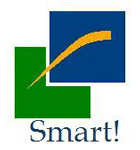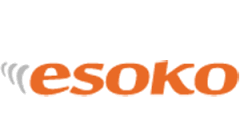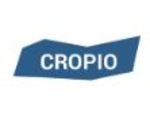Description

FarmERP

Smart! Fertilizer Management
Comprehensive Overview: FarmERP vs Smart! Fertilizer Management
FarmERP Overview
a) Primary Functions and Target Markets:
-
Primary Functions:
- Farm Management: FarmERP provides extensive farm management solutions, allowing for the planning, monitoring, and analysis of all activities on the farm. This includes crop management, resource management, and supply chain management.
- Data Analytics: The platform offers comprehensive data analytics tools to help farmers make informed decisions based on data-driven insights.
- Financial Management: It incorporates financial management functions to aid in budgeting, cost analysis, and financial forecasting.
- Traceability and Compliance: Ensures transparency and compliance with agricultural standards and regulations by tracking products from farm to table.
- Sustainability: Provides tools for sustainable farming practices to reduce environmental impact.
-
Target Markets:
- Corporate Farming Enterprises: Large-scale farming operations that require sophisticated management systems.
- Agri-Businesses: Businesses involved in various stages of the agricultural supply chain.
- Governments and Institutions: Organizations that require comprehensive agricultural data and analysis for planning and policy-making.
Smart! Fertilizer Management Overview
a) Primary Functions and Target Markets:
- Primary Functions:
- Fertilizer Optimization: Smart! Fertilizer Management focuses on optimizing fertilizer use to enhance crop yield and reduce costs.
- Nutrient Management Planning: Offers tools for creating nutrient management plans that suit specific crops, soil types, and environmental conditions.
- Environmental Impact Reduction: Aims to minimize the environmental footprint of fertilizer use through precise application and management.
- Real-Time Recommendations: Provides real-time recommendations and adjustments to ensure optimal nutrient delivery.
- Target Markets:
- Farmers: Individual farmers who need efficient and cost-effective fertilizer management solutions.
- Agricultural Consultants: Professionals offering consultancy services in agronomy and related fields.
- Agri-Corporations: Large agricultural companies needing to manage extensive fertilizer usage across various operations.
Market Share and User Base
b) Overall Market Share and User Base:
-
FarmERP: Tends to have a larger market share among corporate farming enterprises and agri-businesses due to its comprehensive suite of features tailored to large-scale operations. Its user base includes major agricultural enterprises globally, as well as government and institutional clients.
-
Smart! Fertilizer Management: This product might have a smaller market share but serves a niche market effectively, focusing primarily on fertilizer management. It is favored by farmers and agricultural consultants looking for specialized solutions in fertilizer optimization.
Key Differentiating Factors
c) Differentiating Factors:
-
Scope of Functionality:
- FarmERP is a comprehensive farm management solution covering a wide range of agricultural processes beyond just fertilizer management. It is suitable for entities needing an all-in-one platform for various farming activities.
- Smart! Fertilizer Management specializes in fertilizer and nutrient management, offering expertise and solutions specifically geared toward optimizing this aspect of farming.
-
User Base Focus:
- FarmERP targets large-scale operations and government institutions, thus providing more extensive tools and reporting features needed by these entities.
- Smart! Fertilizer Management addresses the needs of individual farmers and consultants by offering precise and focused tools for fertilizer application.
-
Technological Emphasis:
- FarmERP integrates a wide array of technologies like IoT, remote sensing, and blockchain for traceability, providing a more technologically diverse platform.
- Smart! Fertilizer Management focuses on agronomic algorithms and data science for fertilizer recommendations, leveraging technology to improve specific on-field operations.
These differences illustrate that while both products aim to improve agricultural efficiency, they cater to slightly different needs within the agriculture sector, with FarmERP providing a comprehensive solution and Smart! Fertilizer Management delivering specialized expertise.
Contact Info

Year founded :
2001
+91 20 2421 6370
Not Available
India
http://www.linkedin.com/company/farmerp-smart-platform

Year founded :
Not Available
Not Available
Not Available
Not Available
Not Available
Feature Similarity Breakdown: FarmERP, Smart! Fertilizer Management
When comparing FarmERP and Smart! Fertilizer Management, both of which are tools used in the agricultural sector to enhance productivity and efficiency, we can break down their similarities and differences as follows:
a) Core Features in Common:
-
Crop Management: Both platforms offer features for managing crop data, planning, and monitoring growth stages. They provide insights into optimal planting and harvesting times.
-
Data Analytics: FarmERP and Smart! Fertilizer Management offer analytics tools that help users interpret agricultural data to make informed decisions about their farming practices.
-
Resource Optimization: Both systems focus on optimizing the use of resources like water, fertilizers, and labor. They aim to reduce waste and improve yield by recommending the best practices.
-
Weather Forecasting: Integrated weather data and forecasting tools help farmers anticipate climatic changes and plan appropriately.
-
Pest and Disease Management: Both platforms include functionality for identifying and managing pests and diseases, offering recommendations for prevention and treatment.
b) Comparison of User Interfaces:
-
FarmERP has a comprehensive interface that integrates multiple aspects of farm management, which can be quite feature-rich and detailed. It is designed to handle a wide range of farm management activities, suitable for medium to large-scale operations. FarmERP's interface might require some time to get used to due to its depth and breadth.
-
Smart! Fertilizer Management tends to have a more focused and streamlined interface primarily aimed at optimizing fertilizer use. Its UI is often considered more user-friendly for those specifically looking for fertilizer management solutions. It is typically more straightforward, with easy-to-use tools for nutrient management and soil health monitoring.
c) Unique Features:
-
FarmERP:
- Comprehensive Farm Management: Includes modules for financial management, HR, and supply chain management, offering a 360-degree approach to farm management.
- Sustainability Reporting: Tools for sustainability metrics and environmental impact assessments.
- Integration Capabilities: Can integrate with IoT devices and other third-party services to provide a holistic data environment.
-
Smart! Fertilizer Management:
- Specialized Fertilizer Optimization: Offers advanced algorithms specifically designed to optimize fertilizer application, calculate the exact needs of different crop types, and thus is highly specialized for precision fertilization.
- Nutrient Management Planning: Provides detailed nutrient management plans customized to the specific soil and crop conditions.
- Cost-Benefit Analysis: Custom reports on the cost-effectiveness of different fertilization strategies, allowing for comparison and adjustment of practices based on economic outcomes.
Overall, the choice between these two tools would depend on the specific needs of the users—whether they need a broad-spectrum farm management tool like FarmERP or a specialized fertilization management solution like Smart! Fertilizer Management.
Features

Not Available

Not Available
Best Fit Use Cases: FarmERP, Smart! Fertilizer Management
FarmERP and Smart! Fertilizer Management cater to distinct needs within the agriculture and agribusiness sectors, serving various types of businesses, projects, and industry verticals. Here's how they best fit different scenarios:
a) FarmERP
Best Fit Use Cases:
-
Large Agribusiness Enterprises:
- Type of Businesses/Projects: FarmERP is best suited for large agribusinesses that manage multiple farms or engage in diversified agricultural operations. These could include large-scale crop producers, contract farming operations, and multi-location enterprises needing centralized management.
- Key Features: Offers comprehensive enterprise resource planning (ERP) with modules for crop planning, financial management, supply chain, and inventory control.
-
Farmer Cooperatives and Associations:
- Type of Businesses/Projects: Cooperatives that manage multiple farmers and need to streamline operations, reporting, and financials.
- Key Features: Facilitates cooperative operations by integrating data across members, enhancing planning, and delivering actionable insights to improve productivity.
-
Agri-Tech Startups:
- Type of Businesses/Projects: Startups focusing on digital agriculture seeking to implement ERP systems tailored for complex farm management needs.
- Key Features: Provides scalability and customization for startups that focus on integrating technology with agriculture for improved efficiency.
b) Smart! Fertilizer Management
Best Fit Use Cases:
-
Individual or Small-Medium Scale Farmers:
- Type of Businesses/Projects: Suitable for individual farmers or smaller operations where efficient fertilizer use is crucial for cost reduction and yield improvement.
- Key Features: Specific nutrient recommendations, cost-effective fertilizer management strategies, and productivity optimization.
-
Agronomists and Agricultural Consultants:
- Type of Businesses/Projects: Professionals who advise farmers on best practices for crop nutrition and soil fertility.
- Key Features: Offers expert systems for precise fertilizer recommendation and analytics, enhancing the value offered by consultants.
-
Research Projects and Academia:
- Type of Businesses/Projects: Academic institutions and research projects focusing on sustainable agriculture and efficient input use.
- Key Features: Utilizes soil test data and plant analysis to develop best practices in fertilizer management.
d) Industry Verticals and Company Sizes Catered To:
-
FarmERP:
- Industry Verticals: Primarily targets the agribusiness sector, touching various industry verticals including dairy, poultry, aquaculture, and horticulture in addition to conventional cropping systems.
- Company Sizes: It is tailored for medium to large enterprises and cooperatives where integrating multiple operations into a centralized system is essential for efficiency.
-
Smart! Fertilizer Management:
- Industry Verticals: Specifically designed for precision agriculture with a focus on fertilizer management across various crop types, including grains, vegetables, fruits, and perennial crops.
- Company Sizes: Caters mostly to individual farmers, small to medium-sized enterprises, and agricultural consultants who focus on optimizing specific agricultural inputs.
Both products support sustainability efforts by enhancing agricultural productivity while aiming for minimal environmental impact, although they address different scales and facets of agricultural operations.
Pricing

Pricing Not Available

Pricing Not Available
Metrics History
Metrics History
Comparing teamSize across companies
Conclusion & Final Verdict: FarmERP vs Smart! Fertilizer Management
Conclusion and Final Verdict on FarmERP vs. Smart! Fertilizer Management
When comparing FarmERP and Smart! Fertilizer Management, both platforms present unique strengths that cater to different aspects of agricultural management. Choosing between them largely depends on the specific needs and priorities of the user. Below is a detailed evaluation of both products.
a) Best Overall Value
FarmERP offers the best overall value for users seeking a comprehensive farm management solution. Its feature-rich platform includes modules for crop management, inventory management, financial analysis, and traceability, making it suitable for both small and large-scale operations. FarmERP's ability to integrate various aspects of farm operations provides a holistic view, enabling better decision-making and efficiencies in resource usage.
Smart! Fertilizer Management, while highly specialized, provides immense value for users focused primarily on optimizing fertilizer use. Its data-driven approach and integration with global weather databases make it an excellent choice for those looking to maximize crop yields through precise nutrient management.
b) Pros and Cons
FarmERP:
-
Pros:
- Comprehensive farm management features covering multiple areas like crops, finance, and supply chain.
- Scalable and adaptable to different farm sizes and types.
- Provides data analytics and reporting for improved decision-making.
- Supports sustainability initiatives with traceability and compliance tools.
-
Cons:
- Can be complex for users who require only specific functionalities.
- Higher initial costs and potentially longer implementation time for full integration.
Smart! Fertilizer Management:
-
Pros:
- Specializes in precise fertilizer management, promoting efficient use of resources.
- Access to a global weather database for more accurate nutrient recommendations.
- User-friendly interface tailored to fertilizer optimization.
- Encourages sustainable agricultural practices by minimizing waste.
-
Cons:
- Limited in scope beyond fertilizer and nutrient management.
- May not offer the same level of comprehensive farm management features as FarmERP.
- Could require additional tools or platforms to address other farming needs.
c) Recommendations for Users
-
Determine Primary Needs:
- If your main objective is to streamline and optimize all aspects of farm operations, including financials and supply chain management, FarmERP is likely the better choice.
- If your primary goal is to enhance nutrient management and you already have systems in place for other aspects of farm management, consider Smart! Fertilizer Management.
-
Consider Scale and Complexity:
- For large or complex farming operations where integration across multiple functions is necessary, FarmERP provides the tools needed for scalability and customization.
- For simpler operations focusing on yield improvement through effective nutrient management, Smart! Fertilizer Management offers an efficient and less complex solution.
-
Evaluate Budget and Resources:
- Assess the financial and human resources available for investment in farm management software. While FarmERP may have higher upfront costs, its wide range of features could justify the investment.
- For more budget-conscious operations focused narrowly on fertilizer optimization, Smart! Fertilizer Management might offer a better return on investment.
In conclusion, both FarmERP and Smart! Fertilizer Management have their respective strengths, and the ideal choice depends on the user's specific requirements, operational scale, and agricultural priorities. Users should carefully evaluate their goals and capacities to make an informed decision.
Add to compare
Add similar companies



